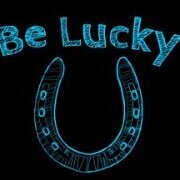Leaderboard
Popular Content
Showing content with the highest reputation on 07/18/2013 in all areas
-
LONDON (The Borowitz Report)—Moments after approving a new law legalizing gay marriage in England and Wales, Queen Elizabeth II of Britain unleashed a blistering attack on New Jersey Governor Chris Christie for “lacking the guts” to do the same. The British monarch’s brutal evisceration of Gov. Christie stunned observers, who did not know that she was such a close follower of his gay-marriage stance. “I don’t like to badmouth people,” she said. “But I’m the head of a monarchy that began in the ninth century, and I’m apparently more modern than Chris Christie.” After shocking observers with her opening salvo, she continued to tear Gov. Christie to shreds. “Look, I know he has to appeal to the crazy right wingers in his party,” she added. “But the fact is, he’s not as forward-thinking as an eighty-seven-year-old lady who wears a crown on her head. It’s pathetic.” Asked if she had advice for Gov. Christie, the British monarch said, bluntly, “Just sign the damn bill, Chris.” Responding to a reporter’s question about the upcoming royal birth, Elizabeth replied, “Tell you the truth? I’m just glad the kid’s not being born in New Jersey.” http://www.newyorker.com/online/blogs/borowitzreport/2013/07/queen-elizabeth-rips-chris-christie-on-gay-marriage.html PS The title of his blog is News un Shuffled. But, hell, it is funny isn't it?2 points
-
The middle-aged couple had finally learned how to send and receive texts on their cell phones. The wife, being a romantic at heart, decided one day that she’d send her husband a text while she was out of the house having coffee with a friend. She texted:2 points
-
1 point
-
Vehicle Records Taken By Law Enforcement Agencies
AdamSmith reacted to TampaYankee for a topic
Vehicle Records Taken By Law Enforcement Agencies Across America: ACLU By ANNE FLAHERTY and CALVIN WOODWARD 07/17/13 08:06 PM ET EDT AP WASHINGTON — You can drive, but you can't hide. A rapidly growing network of police cameras is capturing, storing and sharing data on license plates, making it possible to stitch together people's movements whether they are stuck in a commute, making tracks to the beach or up to no good. For the first time, the number of license tag captures has reached the millions, according to a study published Wednesday by the American Civil Liberties Union based on information from hundreds of law enforcement agencies. Departments keep the records for weeks or years, sometimes indefinitely, saying they can be crucial in tracking suspicious cars, aiding drug busts, finding abducted children and more. Attached to police cars, bridges or buildings – and sometimes merely as an app on a police officer's smartphone – scanners capture images of passing or parked vehicles and pinpoint their locations, uploading that information into police databases. Over time, it's unlikely many vehicles in a covered area escape notice. And with some of the information going into regional databases encompassing multiple jurisdictions, it's becoming easier to build a record of where someone has been and when, over a large area. While the Supreme Court ruled in 2012 that a judge's approval is needed to use GPS to track a car, networks of plate scanners allow police effectively to track a driver's location, sometimes several times every day, with few legal restrictions. The ACLU says the scanners are assembling a "single, high-resolution image of our lives." "There's just a fundamental question of whether we're going to live in a society where these dragnet surveillance systems become routine," said Catherine Crump, a staff attorney with the organization. The group is proposing that police departments immediately delete any records of cars not linked to any crime. Although less thorough than GPS tracking, plate readers can produce some of the same information, the group says, revealing whether someone is frequenting a bar, joining a protest, getting medical or mental help, being unfaithful to a spouse and much more. In Minneapolis, for example, eight mobile and two fixed cameras captured data on 4.9 million license plates from January to August 2012, the Star Tribune reported. Among those whose movements were recorded: Mayor R.T. Rybak, whose city-owned cars were tracked at 41 locations in a year. A Star Tribune reporter's vehicle was tracked seven times in a year, placing him at a friend's house three times late at night, other times going to and from work – forming a picture of the dates, times and coordinates of his daily routine. Until the city temporarily classified such data late last year, anyone could ask police for a list of when and where a car had been spotted. As the technology becomes cheaper and more widespread, even small police agencies are able to deploy more sophisticated surveillance systems. The federal government has been a willing partner, offering grants to help equip departments, in part as a tool against terrorism. Law enforcement officials say the scanners are strikingly efficient. The state of Maryland told the ACLU that troopers could "maintain a normal patrol stance" while capturing up to 7,000 license plate images in a single eight-hour shift. "At a time of fiscal and budget constraints, we need better assistance for law enforcement," said Harvey Eisenberg, assistant U.S. attorney in Maryland. Law enforcement officials say the technology automates a practice that's been around for years. The ACLU found that only five states have laws governing license plate readers. New Hampshire, for example, bans the technology except in narrow circumstances, while Maine and Arkansas limit how long plate information can be stored. "There's no expectation of privacy" for a vehicle driving on a public road or parked in a public place, said Lt. Bill Hedgpeth, a spokesman for the Mesquite Police Department in Texas. The department has records stretching back to 2008, although the city plans next month to begin deleting files older than two years. In Yonkers, N.Y., just north of New York City's Bronx, police said retaining the information indefinitely helps detectives solve future crimes. In a statement, the department said it uses license plate readers as a "reactive investigative tool" that is only accessed if detectives are looking for a particular vehicle in connection with a crime. "These plate readers are not intended nor used to follow the movements of members of the public," the department said. Even so, the records add up quickly. In Jersey City, N.J., for example, the population is 250,000, but the city collected more than 2 million plate images in a year. Because the city keeps records for five years, the ACLU estimates that it has some 10 million on file, making it possible for police to plot the movements of most residents, depending upon the number and location of the scanners. The ACLU study, based on 26,000 pages of responses from 293 police departments and state agencies across the country, found that license plate scanners produced a small fraction of "hits," or alerts to police that a suspicious vehicle had been found. In Maryland, for example, the state reported reading about 29 million plates between January and May of last year. Of that number, about 60,000 – or roughly 1 in every 500 license plates – were suspicious. The main offenses: a suspended or revoked registration, or a violation of the state's emissions inspection program, altogether accounting for 97 percent of alerts. Even so, Eisenberg, the assistant U.S. attorney, said the program has helped authorities track 132 wanted suspects and can make a critical difference in keeping an area safe. Also, he said, Maryland has rules in place restricting access. Most records are retained for one year, and the state's privacy policies are reviewed by an independent board, Eisenberg noted. At least in Maryland, "there are checks, and there are balances," he said. See original article at: http://www.huffingtonpost.com/2013/07/17/vehicle-records-_n_3610770.html1 point -
Why Doesn't the USA Appreciate Latin Men More?
AdamSmith reacted to TampaYankee for a topic
IMO your impressions seem to me to be rooted more in the wider American cultural sterotypes -- the straight community. Since the days of slavery the concept of the sexual prowess of the mandigo has inflamed the white male ideas of black malehood and flamed the fantasies of the fairer sex. This has survived in some sense, more or less, to present day. The idea of that latin lover was built in the forties and fifties with screenstars: Jose Ferrer, Ricky Ricardo, Cesar Romero, Ricardo Montalban and others. Again, the appeal was to the women, while nonlatin males tolerated the fantasies, those who did not resent it. That still exists today with the likes of Mario Lopez, Enrique Iglesias, William Levy and others. To distill it down to the very essence, mandigos represent torrid sex and latinos romantic lovers. The mandingo model is male driven by resentment and fear of comparison while the latino model is driven by female fantasies. As for the gay community, I have no idea what fanned the flames in the 40s and fifties but I suspect it was much the same as today, big dicks and insatiable bottoms. There does exist a streak of racial prejudice in the gay community much like the straight community. As for your distinction of latin men by geography, reports of the sexual prowess of Brazilians is often reported on this site as well as others, probably all sites that deal with the subject of sexual prowess. But the fact is that most contact with latinos in this country break down by coast with Cubans and Puerto Ricans on the East Coast and Mexicanos on the West Coast. The other nationalities make up a much smaller portion of the mix. This is all my opinion, of course, based on my limited observations. I wish I had more first hand experience with latinos all around.1 point -
From the Pop Group "Scissor Sisters"..... I never paid him much attention, BUT he IS kinda Adorable !1 point
-
1 point
-
1 point
-
In the circles I travel in, admittedly not large ones, there is no drug use other than medical marijuana, which I fully support. Many years ago in San Francsico I briefly dated a young guy who liked cocaine. I was amazed at how widespread the cocaine underworld was. In essence, it surrounded us. If you were not tuned in to it, you didn't notice. The war on drugs has been a huge failure.1 point
-
1 point


